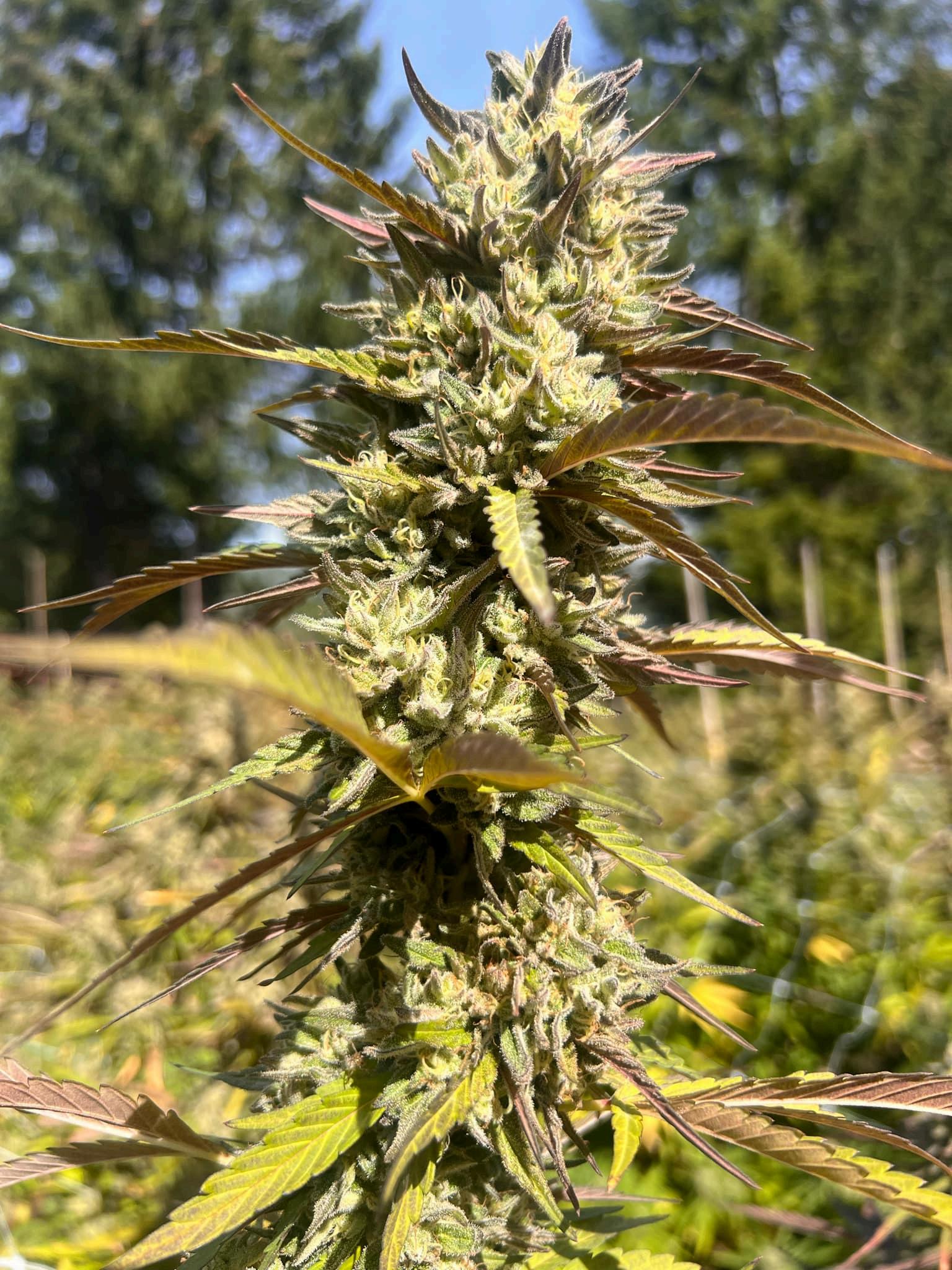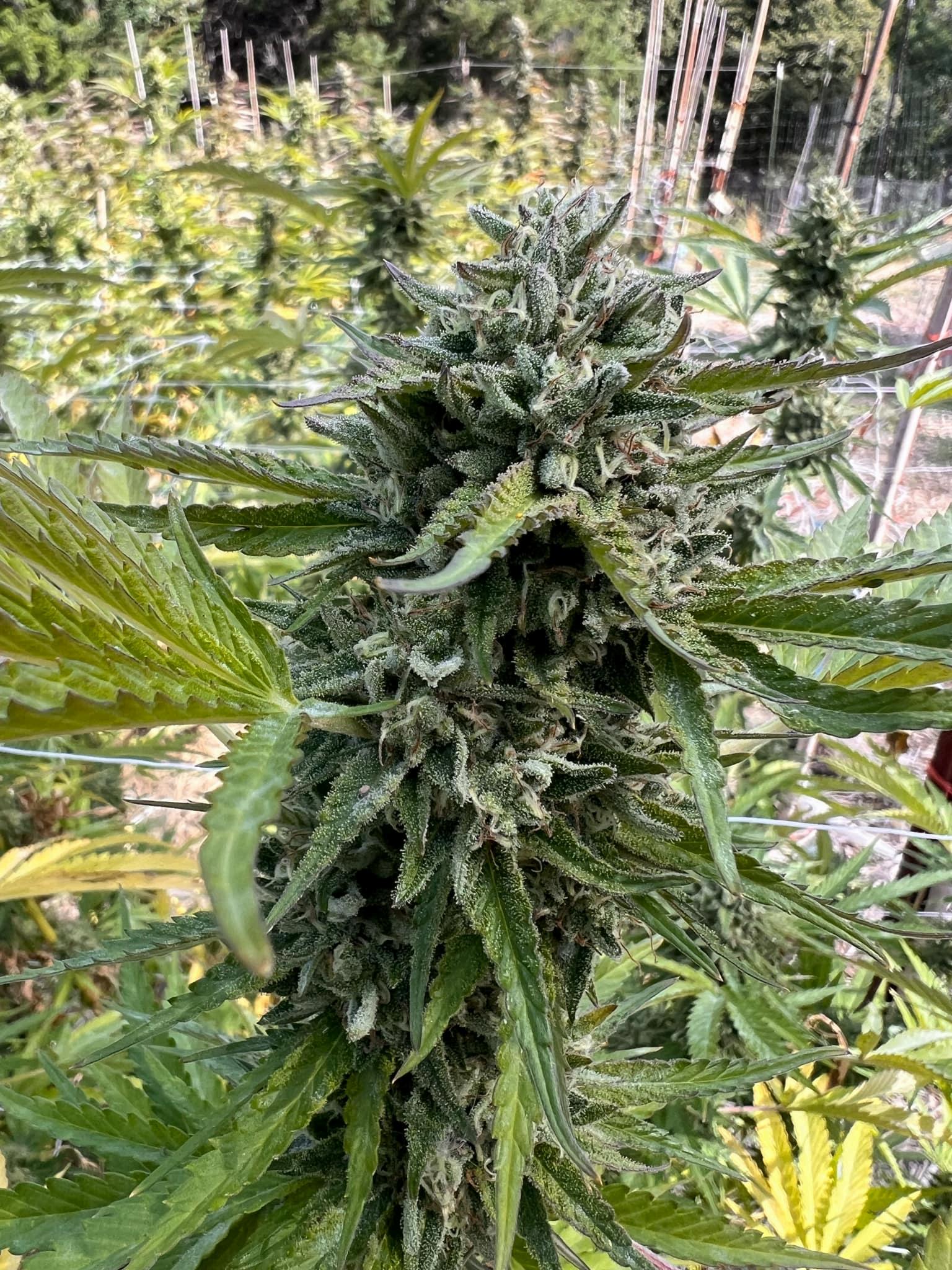
5 minute read
Cannascience: How Can Cannabis Help with the Human Reproductive System
Did you know that cannabis has been increasingly researched for its effects on various body systems, including the reproductive system. There is growing support for specific uses of cannabis in addressing reproductive health concerns. Today, we will explore the benefits of cannabis for the reproductive system, details specific cultivars, and discuss complementary herbs and foods known to support reproductive health.
Cannabis and Hormonal Balance
The endocannabinoid system plays a vital role in regulating various physiological processes, including hormonal balance. Cannabinoids like cannabidiol (CBD) and tetrahydrocannabinol (THC) interact with receptors (CB1 and CB2) within the ECS, which are distributed across the brain, immune system, and reproductive organs. These receptors help modulate the release of hormones like luteinizing hormone (LH) and follicle-stimulating hormone (FSH), which are crucial for ovulation, sperm production, and other reproductive processes. Research has shown that certain cannabinoids may aid in balancing these hormones, potentially benefiting those with hormonal imbalances or polycystic ovary syndrome (PCOS) (Wang et al., 2019).

Farmer: Dave SandomenoMethod: Regenerative, Organic Sungrown
Menstrual Pain Relief
Cannabis has shown potential in managing dysmenorrhea, or menstrual pain, thanks to its anti-inflammatory and analgesic properties. A study by Ranganathan et al. (2020) found that THC and CBD can help reduce the perception of pain by blocking pain receptors and reducing inflammation.
Cannabis strains high in CBD, such as Harlequin and ACDC, are often recommended for menstrual pain as CBD is known for its non-psychoactive yet potent anti-inflammatory effects. These strains can help ease muscle tension and reduce cramping without the intense high that THC-dominant cultivars might cause.
Enhancing Fertility and Supporting Conception
While research on cannabis and fertility is complex and at times conflicting, certain strains and doses may positively impact reproductive function. Lower doses of THC have been shown to potentially stimulate the release of reproductive hormones beneficial for conception. However, excessive THC use has been linked to decreased sperm count and altered menstrual cycles. Strains such as Blue Dream and Jack Herer are moderate in THC content and are noted for their ability to promote relaxation, reducing stress—a factor closely linked to fertility issues. Balancing THC intake with high-CBD strains may be key to minimizing any adverse reproductive effects while still reaping the relaxation benefits needed for reproductive health.
Managing Endometriosis
Endometriosis, a painful condition where uterine tissue grows outside the uterus, has been challenging to treat with conventional medicine. However, cannabis has shown promise in reducing the inflammation and chronic pain associated with this condition. In a study by Sinclair et al. (2020), cannabinoids were found to suppress the proliferation of endometrial cells and alleviate pain by modulating pain receptors. Cannatonic and Purple Kush, cultivars with balanced CBD and THC levels, are reported to offer both pain relief and muscle relaxation, making them potentially helpful for endometriosis management.
Supporting Libido and Sexual Health
Cannabis may enhance sexual health by reducing anxiety, which often negatively impacts libido and intimacy. Low to moderate doses of THC have been shown to reduce stress and increase blood flow to reproductive organs, enhancing sexual arousal. Additionally, cultivars like Granddaddy Purple and Sour Diesel are known for their ability to relax the body and mind, potentially boosting libido. CBD-dominant strains, meanwhile, may be more beneficial for those who seek relaxation without the psychoactive effects.
Herbs and Foods for Reproductive Health
Several herbs and foods can work alongside cannabis to promote reproductive health:
Maca Root: Known for its adaptogenic properties, maca root supports hormonal balance and energy, potentially enhancing libido and reproductive function. Research by Melnikovova et al. (2020) found that maca could increase fertility and reduce symptoms associated with menopause.
Ashwagandha: This adaptogenic herb helps lower cortisol levels, which may improve fertility by reducing stress levels. Ashwagandha has been shown to support hormone balance and enhance reproductive tissue health.
Chasteberry (Vitex): This herb is particularly beneficial for balancing female hormones, supporting regular menstrual cycles, and reducing PMS symptoms. Studies suggest chasteberry may positively influence LH and FSH, aiding fertility and menstrual health.
Zinc-Rich Foods: Zinc is vital for reproductive health, supporting sperm production in men and ovulation in women. Foods like pumpkin seeds, chickpeas, and almonds are rich in zinc and are beneficial when included in a balanced diet.
Leafy Greens and Berries: High in antioxidants, these foods can protect reproductive organs from oxidative stress, which can negatively impact fertility. Including foods like spinach, kale, and blueberries in your diet supports cellular health and hormone regulation.
All information in this article is for educational purposes only. The information provided is derived from research gathered from external sources. Please check with your Cannabis Educated Primary Health Care Physician or Educated & Trained Cannabis Therapy Consultant before beginning any new diet or lifestyle change.
Written by Dr. Pepper Hernandez ND, Ph.D., CTC, CNHP in ECS & Naturopathic Medicine, Cannabis Therapy Consultant, The Founder and Education Director of the Cannabis Holistic Institute. To find out more about her Telemedicine Consultations, Educational Programs, YouTube videos, and other creative content, you can find her on the massive inter-webs on all platforms or at drpepperhernandez.com.
Go forth, Go Cannabis...










